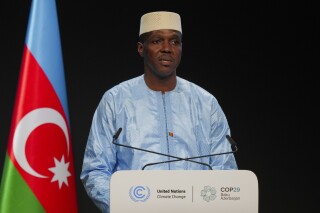
DAR ES SALAAM, Oct 11 (NNN-KBC) — Revamped mutual relations between Tanzania and China have been bearing fruits for the East African nation going beyond infrastructural development to include the setting up of a Beijing military base on the Indian Ocean coast.
Political and diplomatic observers attribute the cordial relations between China and Tanzania to President Samia Suluhu Hassan’s purposeful policy of looking East.
The Chinese ambassador to Tanzania Cheng Mingjian recently outlined the importance of the military co-operation with Tanzania in strengthening bilateral relations, an open indication of the growing friendship between the two nations.
Currently in her third year in office, the ambassador of the People’s Republic of China to Tanzania has played a primary role in influencing and strengthening the ties visible in many other sectors of development.
The significant cooperation between China and Tanzania has been on a roll since former Vice President Samia Suluhu Hassan took over the reins of power in March 2021, after the death in office of John Pombe Magufuli.
Under Suluhu’s tenure, which coincided with Ambassador Cheng’s term, whose tour of duty commenced in December 2021, the two nations have significantly increased trading ties with China becoming the largest source of foreign investments.
The scope of bilateral engagements in the public domain includes investments in infrastructural projects such as roads, an electric Standard Gauge Railway and ports which are crucial to Tanzania’s transport development. China has also fostered education in the country by offering Tanzanian students scholarships to study in Beijing while facilitating programmes to market Chinese culture in Tanzania.
International relations pundits cite the visibly good relationship between President Suluhu and Ambassador Cheng as the spark behind the accelerated bonding of the two countries.
Ambassador Cheng’s background as Deputy Director-General of the Department of External Security Affairs at the Chinese Ministry of Foreign Affairs (MFA) in Beijing apparently places her in good stead from her home country to fast-track projects with Tanzania.
Her biggest score is seen as penning a mutual pact with Tanzania to establish a military base in Dar-es-Salaam, making it the biggest Chinese defence forces footprint in Africa.
Political observers in East Africa variously argue that Suluhu may not have achieved the political clout of her predecessors, but she could be the one who has attracted the biggest infrastructural development of all – courtesy of her ‘Looking East’ policy.
However, despite the visibility of modern development spurred by good relations between the two nations, many older generation Tanzanians, who grew up during the socialism years of Julius Nyerere, feel that China could be striking the socialism tune in a subtle way to warm itself into the East African country’s body politic and establish military presence to surpass that of the United States on East Africa’s Indian Ocean seaboard.
It might not be obvious to the young generation who are a majority, but there are those who feel their understanding of socialism is being used to infiltrate Tanzania and turn it into one of China’s strongest strategic allies in Africa.
Tanzania was modelled into a socialist state (Ujamaa), allied to the East during over 25 years’ rule by literary scholar Mwalimu Julius Nyerere. Long after Nyerere died, and despite having expressed regret at the political path he took, Tanzania’s social fabric still exudes nostalgia from Ujamaa.
Says Bradley Ouna, a law graduate from the University of Dar-Es-salaam: “Ujamaa was tenderly asserted but kind of forceful in making Tanzanians live together and work interdependently, which helped subdue tribalism, though at a high economic cost caused by sluggish production and no business competition. Towards the end of his presidency, Nyerere admitted it had failed because it had dire financial implications which required a lot of financing by the state.
The scholar argues that China is basically, but subtly, counting on the factor of the same structures of old governance, like there being no difference between state and ruling party in Tanzania and China, to implant its model in Dar es Salaam.
Says Tanzanian lawyer Mutatina Oswald, “The Chinese investments show the good side like creating a lot of employment opportunities for Tanzanians in Kariokor district of Dar es Salaam, where a lot of factories have been set up. Though I can’t say it is the Chinese who are running the economy, they are huge contributors in technologies, infrastructure and business. What we don’t like is maybe seeming to want to have a footprint in every strategic sector, which will apparently see Tanzanians repaying huge loans.”
While China’s military presence in Tanzania is said to enhance security and protect maritime trade routes, there might be growing discomfort among other Eastern African nations who feel Tanzania’s clout militarily could exceed that of the neighbours.
Another diplomatic source says China’s military presence is often accompanied by significant economic investments, but while this is beneficial, military bases can have environmental impacts, including pollution and habitat destruction which can affect local communities and ecosystems.
The diplomatic source from the West says the Chinese military presence will apparently predispose Tanzania to high surveillance by the West, mostly the United States, who are always wary of Chinese adventures out of its traditional waters, causing international competition on an unwitting African country.
Diplomatic observers say only time will tell how deep the dual relationship will go, especially if Suluhu wins the upcoming presidential election. — NNN-KBC



